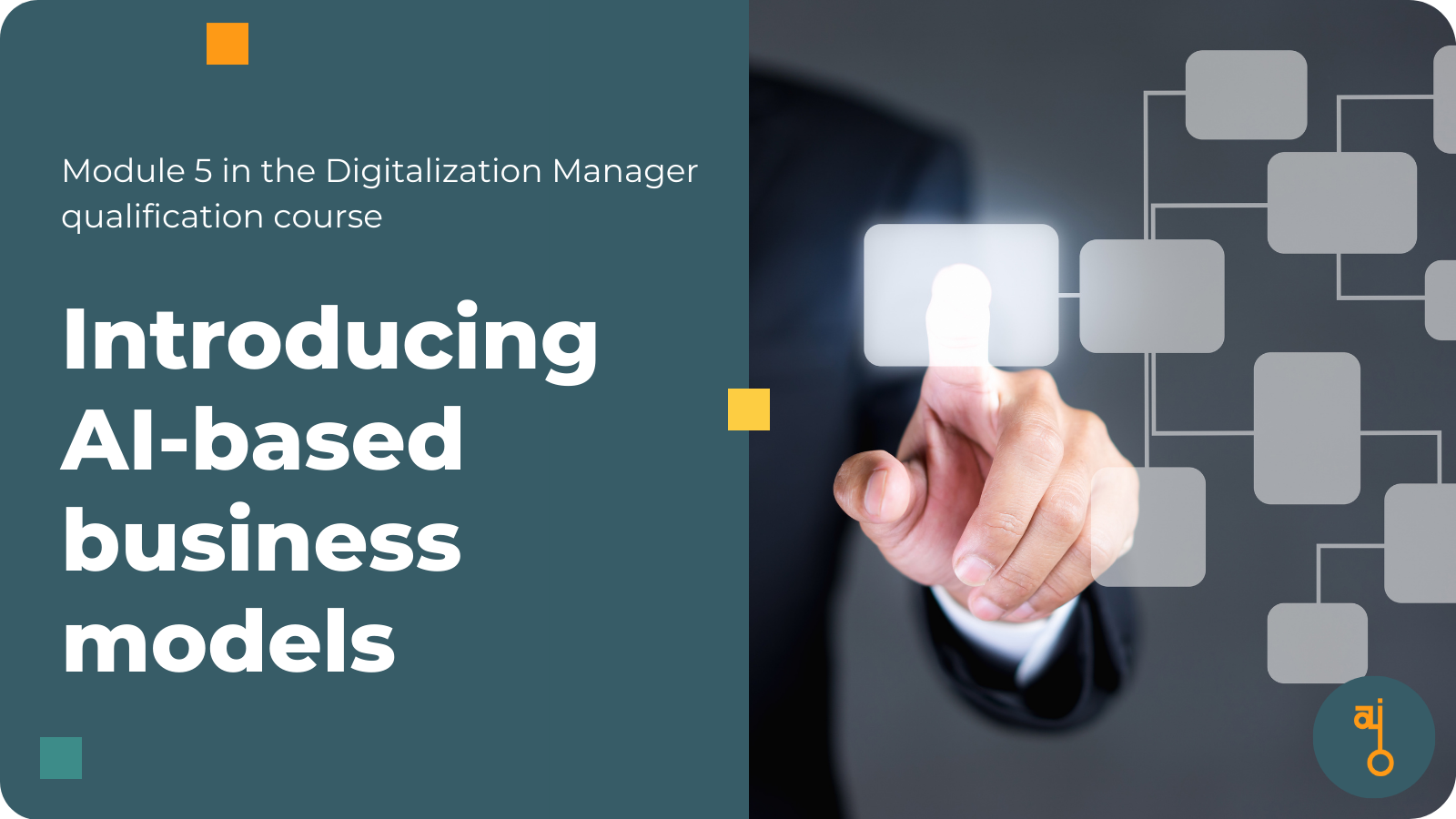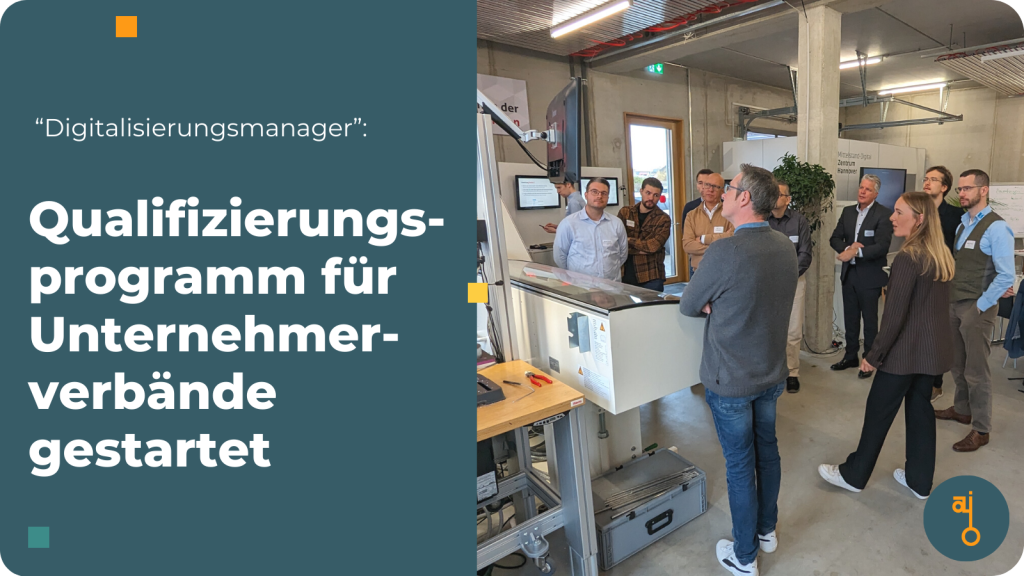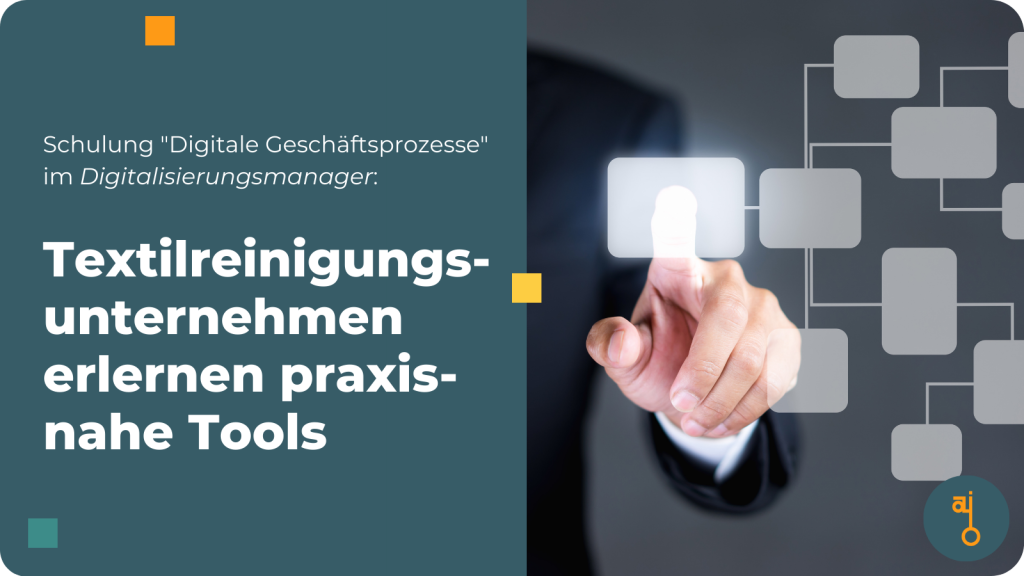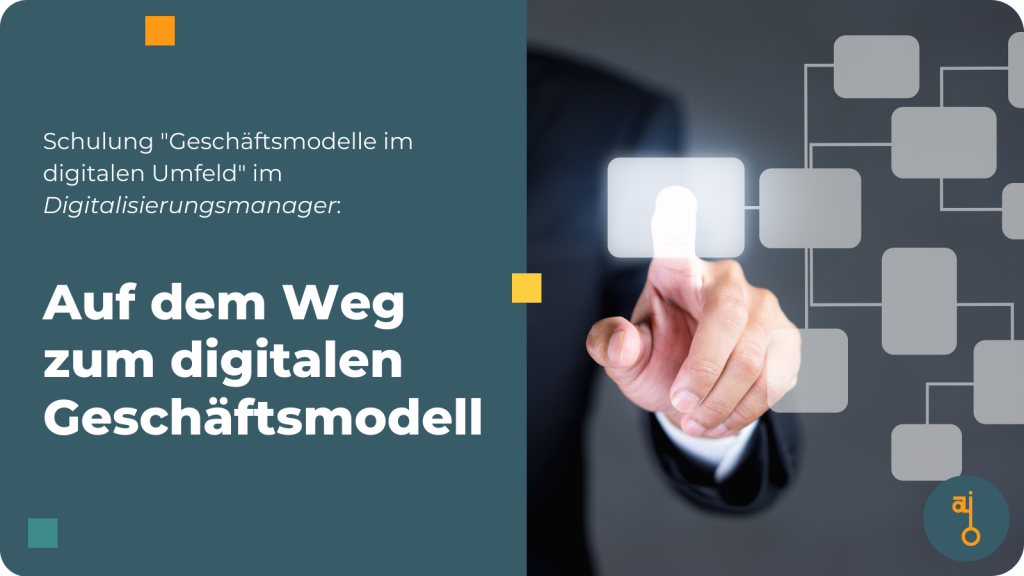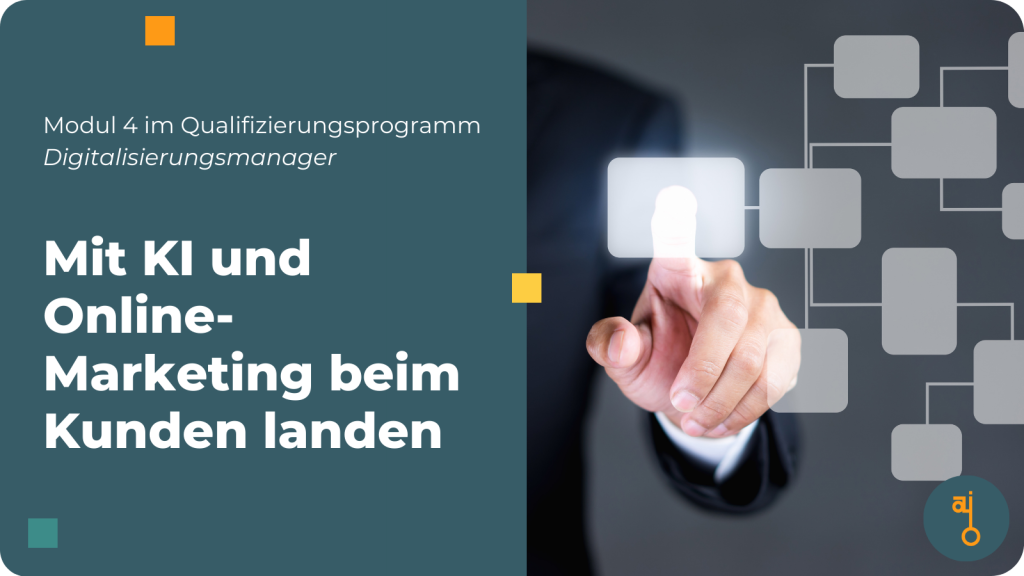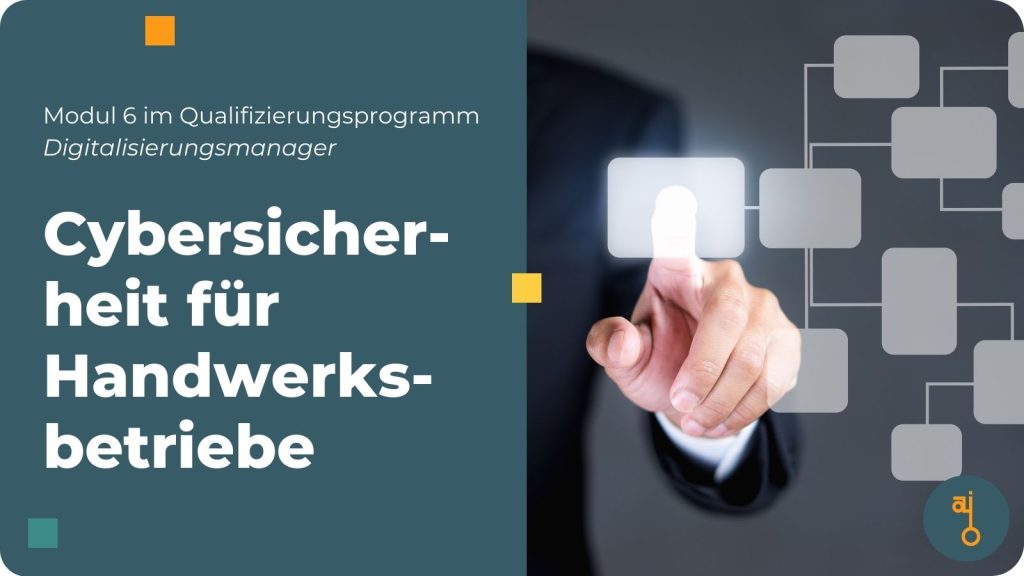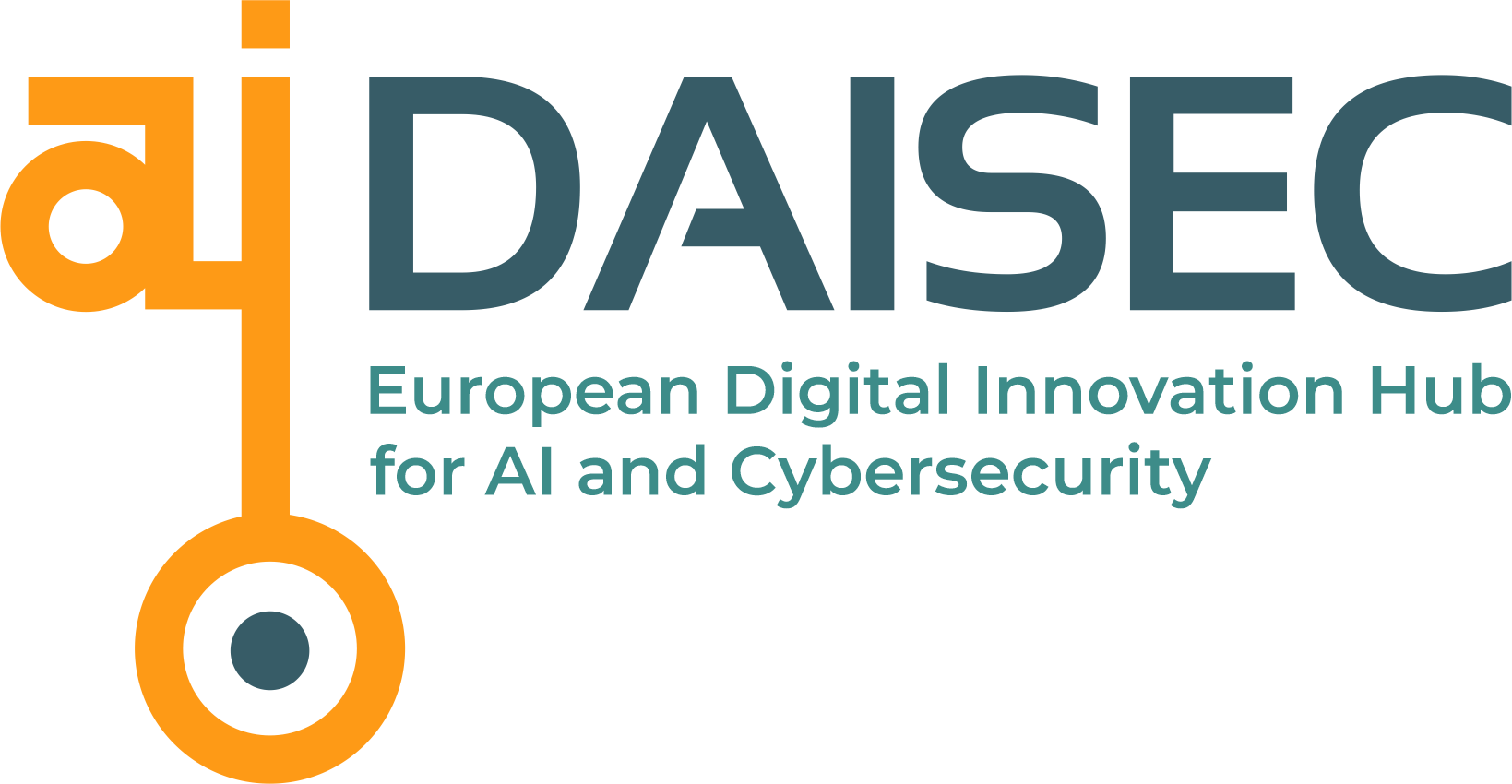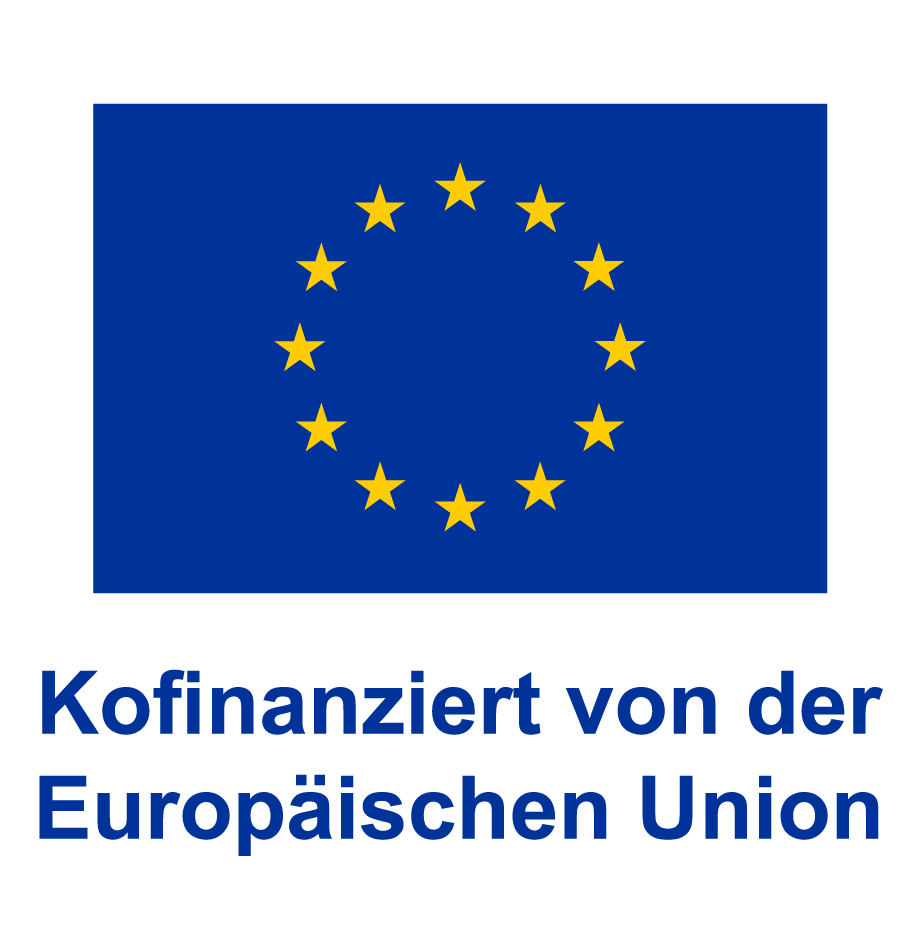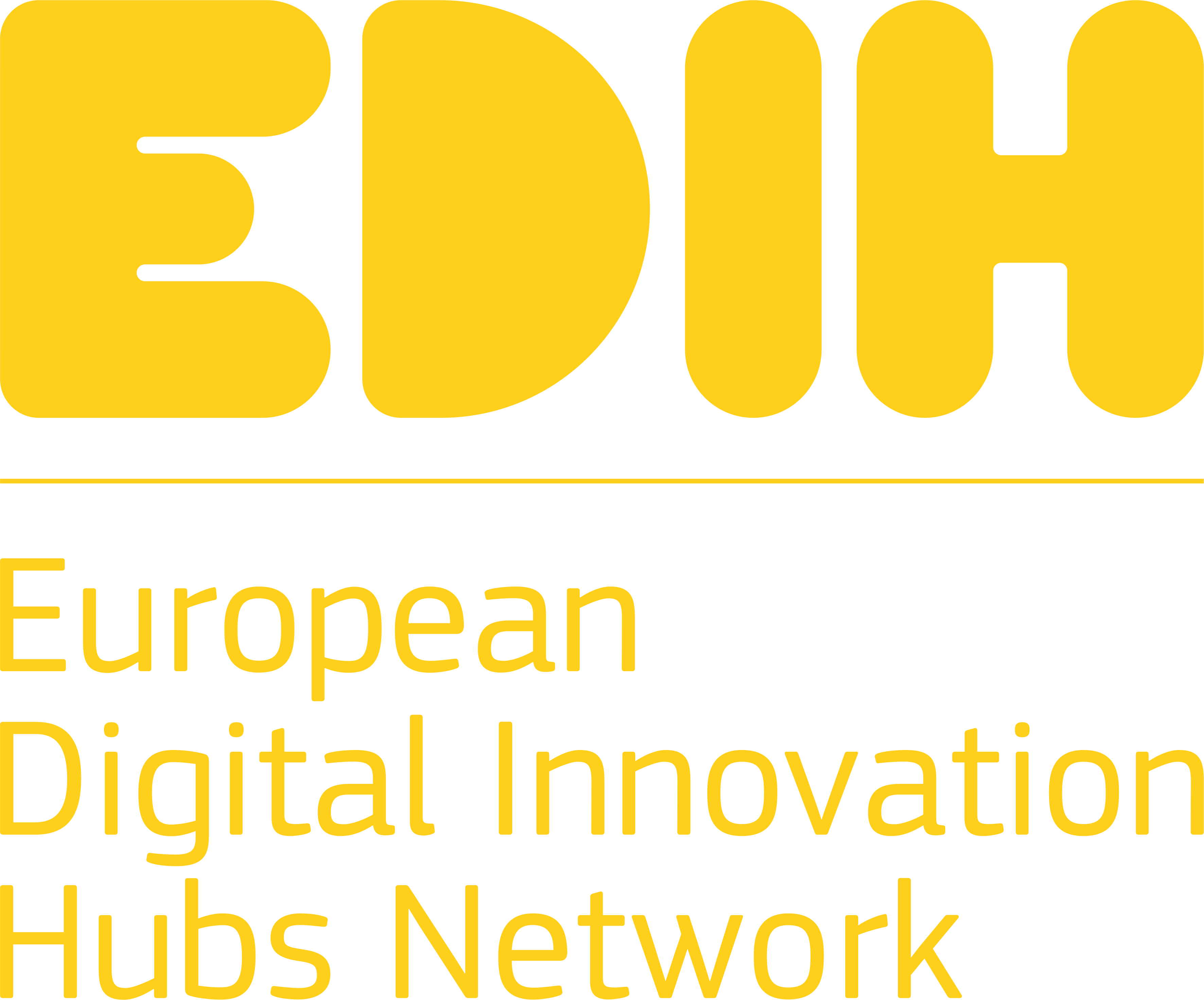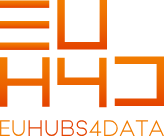On 25.01.2024, the fifth module of the DAISEC qualification program for the Digitalization Manager took place. This unit built on the knowledge from the AI basics module and explained AI-based business models.
The spread of digitalization and artificial intelligence is making it possible to implement selected production and service processes even more efficiently. However, the challenges and uncertainties caused by the various crises of our time for the participating companies and their employees must be taken into account. In this session, Lukas Fischer, an expert in AI technologies in manufacturing, spoke about AI-based business models. These refer to a corporate strategy that uses artificial intelligence as a central element for value creation and innovation. Companies can adapt existing business models through the use of AI or develop new AI-based business models. In the artisanal context, an AI-based business model can encompass various aspects, such as the automation of processes, the use of AI algorithms for predictive maintenance of machines and equipment to minimize downtime, and the application of AI for the development of tailor-made artisanal products or services.
What exactly AI-based business models look like depends on the industry and the specific needs of the trade business. The dry cleaning companies addressed by the series were able to name relevant topics in the discussion, with 60 percent of participants seeing a specific need for application.
In order to introduce AI applications efficiently, the so-called AI readiness of companies is crucial. Lecturer Markus Engel used two examples to explain that different capabilities of a company can be relevant for the successful introduction of AI applications.
In any case, a company's AI readiness should have the appropriate infrastructure, technical expertise and a strategic and economic focus. Equally important is the willingness of employees to drive such changes forward. The path to the goal should be well planned by entrepreneurs and managers and represents a long-term and continuous process.
What were the other modules of this qualification program about? Read it here:
